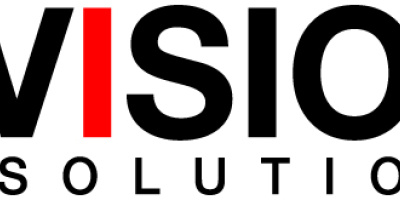The first thing to understand about Strategi SOA is how it differs from other products that claim to move legacy applications to a service-oriented architecture. Other products are usually screen scrapers that put wrappers around the code for existing green screens, but this approach defeats the intent of SOA. Services are supposed to be single-purpose chunks of code. This makes them broadly callable by any service-oriented application that needs that discrete unitary function. In contrast, screen scrapers simply make the screen's code, including all of the underlying complexity, callable as a service so it can be employed more easily to create modern interfaces as seen on Web applications and kiosks. There are benefits to this approach, but it forgoes the wide-ranging reusability and platform-neutral modularity hallmarks of true service-oriented architectures.
Strategi SOA is different. It implements an enterprise service bus (ESB) on a System i server to provide a pure, native SOA environment. This allows programmers using any language—RPG, COBOL, CL or any other System i language—to create services that may be called by applications written in any language and running on any platform. Developers can do this using straight RPG, without the need for a proprietary IDE.
With Strategi SOA, applications written in RPG and any other System i language can easily call any service running on any platform. It doesn't matter whether those services are Java or .NET-based.
Using Strategi SOA, the services that RPG developers employ in their applications don't even have to run on the organization's servers. They can be services that have been made available by other organizations for general use over the Internet, such as Google's search service, or perhaps one that accesses real-time currency exchange rates and converts a value from one currency to another.
Because, with a service it is the functionality that matters, not the language in which it is written, Strategi SOA allows RPG and other System i "legacy"-language programmers to work friction free along with other developers who might be using more "modern" languages, such as Java or C#. The developer who writes a call to a service neither has to know nor care what language was used to create it. The only concern is what the service does.
For example, it is a trivial exercise to use an RPG-based service in a Java application. It becomes equally easy to use a Java-based service in an RPG application. Taking advantage of this characteristic, a service-oriented application is built not as a monolithic string of code, but rather as a collection of services that are called as necessary. By enabling this service-oriented methodology, Strategi SOA allows RPG programmers to shed the "legacy" label that is too often attached to them.
When using Strategi SOA to move legacy application functionality into a service-oriented architecture, it is not necessary to convert everything at once. In fact, ADVANCED BusinessLink advises against that course. "We very strongly discourage the all-or-nothing approach," says Lategan. "We put people through a brief training—architecture and programmer training—and then we tell them, 'With every project you do from now on, fashion that application as a series of services. Don't do anything different from what is on your to-do list now, just do it the new way. Over the course of a few years, you'll end up in a very different place.'"
Using a service-oriented approach, companies can quickly develop modern application interfaces that are difficult, if not impossible, using traditional RPG programming techniques. "The great thing is that, after three days of training, they [developers] can come back with a brand-new Web application, where previously they weren't capable of building one," explains Lategan. "They can give executives inquiries on all of their PDAs and cell phones, which they couldn't do before. They can put a kiosk in the foyer. They can build a Web presence directly from RPG."
Small Footprint, High Performance
Strategi SOA runs within a small footprint on a System i server and doesn't consume interactive resources. As a result, it should run on your existing System i server without the need for an upgrade. In addition, according to ADVANCED BusinessLink, applications running under Strategi SOA run faster than under any other Web application server.
Applications running under Strategi SOA are automatically distributed in nature. If you have a cluster of System i servers or LPARs, Strategi SOA can automatically "glue" them together to make them work as one big grid machine.
In addition to offering the Strategi SOA software, ADVANCED BusinessLink also provides consulting on two levels. One service helps organizations to build the business case for SOA. The other helps to construct a roadmap for the SOA rollout.
ADVANCED BusinessLink has found that, because programmers use existing skills to build services that run under Strategi SOA, the training requirements are minimal. Two education courses also are available from the company. A one-day course teaches system architects about service-oriented architectures. A three-day course teaches programmers how to build applications as a series of services rather than as a monolithic program.
ADVANCED BusinessLink's Strategi SOA is a member of the company's Strategi suite of products, which also includes solutions for Web-enablement and mobility. Founded in 1987 in Sydney, Australia, ADVANCED BusinessLink now has its headquarters in the Seattle, Washington, area, but the company maintains a sales and support office in Sydney, as well as in Paris, London, and Kuala Lumpur. The company has more than 500 customers in 22 countries. For more information, contact ADVANCED BusinessLink. Contact information is provided below.
Joel Klebanoff is a consultant, a writer, and president of Klebanoff Associates, Inc., a Toronto, Canada-based marketing communications firm, and author of BYTE-ing Satire. Joel has 25 years experience working in IT, first as a programmer/analyst and then as a marketer. He holds a Bachelor of Science in computer science and an MBA, both from the University of Toronto. Contact Joel at

ADVANCED BusinessLink
5808 Lake Washington Blvd.
Suite 100
Kirkland, WA 98033
USA
Web: www.businesslink.com
Email:
Tel: 425.602.4777
Fax: 425.602.4789
























 More than ever, there is a demand for IT to deliver innovation. Your IBM i has been an essential part of your business operations for years. However, your organization may struggle to maintain the current system and implement new projects. The thousands of customers we've worked with and surveyed state that expectations regarding the digital footprint and vision of the company are not aligned with the current IT environment.
More than ever, there is a demand for IT to deliver innovation. Your IBM i has been an essential part of your business operations for years. However, your organization may struggle to maintain the current system and implement new projects. The thousands of customers we've worked with and surveyed state that expectations regarding the digital footprint and vision of the company are not aligned with the current IT environment. TRY the one package that solves all your document design and printing challenges on all your platforms. Produce bar code labels, electronic forms, ad hoc reports, and RFID tags – without programming! MarkMagic is the only document design and print solution that combines report writing, WYSIWYG label and forms design, and conditional printing in one integrated product. Make sure your data survives when catastrophe hits. Request your trial now! Request Now.
TRY the one package that solves all your document design and printing challenges on all your platforms. Produce bar code labels, electronic forms, ad hoc reports, and RFID tags – without programming! MarkMagic is the only document design and print solution that combines report writing, WYSIWYG label and forms design, and conditional printing in one integrated product. Make sure your data survives when catastrophe hits. Request your trial now! Request Now. Forms of ransomware has been around for over 30 years, and with more and more organizations suffering attacks each year, it continues to endure. What has made ransomware such a durable threat and what is the best way to combat it? In order to prevent ransomware, organizations must first understand how it works.
Forms of ransomware has been around for over 30 years, and with more and more organizations suffering attacks each year, it continues to endure. What has made ransomware such a durable threat and what is the best way to combat it? In order to prevent ransomware, organizations must first understand how it works. Disaster protection is vital to every business. Yet, it often consists of patched together procedures that are prone to error. From automatic backups to data encryption to media management, Robot automates the routine (yet often complex) tasks of iSeries backup and recovery, saving you time and money and making the process safer and more reliable. Automate your backups with the Robot Backup and Recovery Solution. Key features include:
Disaster protection is vital to every business. Yet, it often consists of patched together procedures that are prone to error. From automatic backups to data encryption to media management, Robot automates the routine (yet often complex) tasks of iSeries backup and recovery, saving you time and money and making the process safer and more reliable. Automate your backups with the Robot Backup and Recovery Solution. Key features include: Business users want new applications now. Market and regulatory pressures require faster application updates and delivery into production. Your IBM i developers may be approaching retirement, and you see no sure way to fill their positions with experienced developers. In addition, you may be caught between maintaining your existing applications and the uncertainty of moving to something new.
Business users want new applications now. Market and regulatory pressures require faster application updates and delivery into production. Your IBM i developers may be approaching retirement, and you see no sure way to fill their positions with experienced developers. In addition, you may be caught between maintaining your existing applications and the uncertainty of moving to something new. IT managers hoping to find new IBM i talent are discovering that the pool of experienced RPG programmers and operators or administrators with intimate knowledge of the operating system and the applications that run on it is small. This begs the question: How will you manage the platform that supports such a big part of your business? This guide offers strategies and software suggestions to help you plan IT staffing and resources and smooth the transition after your AS/400 talent retires. Read on to learn:
IT managers hoping to find new IBM i talent are discovering that the pool of experienced RPG programmers and operators or administrators with intimate knowledge of the operating system and the applications that run on it is small. This begs the question: How will you manage the platform that supports such a big part of your business? This guide offers strategies and software suggestions to help you plan IT staffing and resources and smooth the transition after your AS/400 talent retires. Read on to learn:
LATEST COMMENTS
MC Press Online